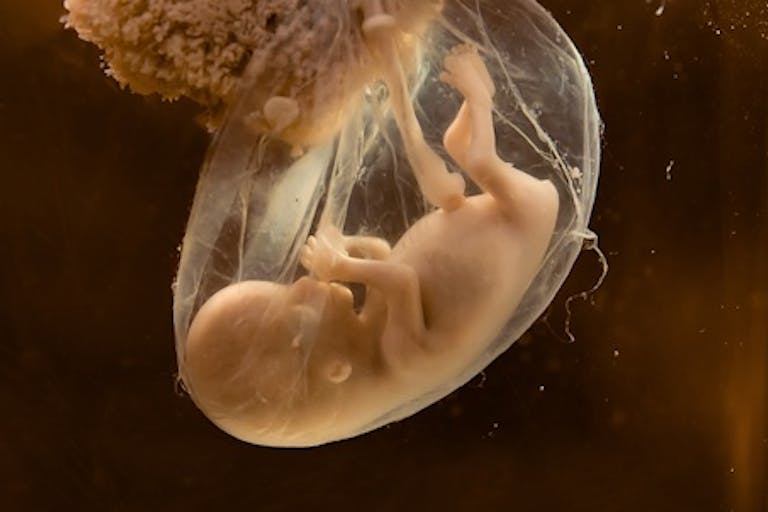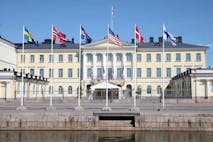
Northern Ireland man charged with murder of woman and her preborn child
Bridget Sielicki
·
Malta is one of the most pro-life countries in the world
In a recent op-ed for the Times of Malta, former Nationalist Party minister Tonio Frenech calls the pro-life country of Malta, an island in the Mediterranean Sea, a “beacon for life and protecting the unborn.” And certainly, given Malta’s pro-life laws, this is the case. The country has consistently resisted pressure from the European Union to liberalize its abortion laws, and the government of Malta continues to protect human beings from fertilization onward — even those conceived in tragic circumstances like rape or incest. It is among the most pro-life countries in the world.
In Frenech’s op-ed, he rebuts the reasoning of pro-abortion apologists who believe that the country should legalize abortion. Some of these pro-abortion arguments include unprovable statements, he says, such as the idea that “scores of women” travel abroad to get abortions every year — something Frenech labels as “mere hearsay.” It is an unsound idea to insist that laws should be changed because people are going to commit a certain act anyway, and therefore that act might as well be made legal. Laws should protect life.
What isn’t hearsay are the facts about Malta — and that embedded in its laws are the right to life for every person, including the preborn child.

A handful of the country’s pro-life laws and regulations are listed below:
1. The Constitution
Article 33 of Malta’s Constitution reads, “no person shall… be deprived of life, liberty, or property.” This is very similar to the Fifth Amendment to the U.S. Constitution, which reads, “No person shall… be deprived of life, liberty, or property, without due process of law.” However, no definition of “person” is given in either country’s Constitution. Despite this, other laws of Malta recognize the personhood of the preborn.
2. Special government offices
Malta’s Commissioner for Children Act states that the commissioner is “to promote the highest standards of health and social services for women during pregnancy and to promote special care and protection, including adequate legal protection, for children both before and after birth.” The country even has an appointed “Guardian of Future Generations,” whose role is one focusing on sustainable development, to be a “voice of those still unborn to defend their right to make their own choices, independently of the choices of present and past generations.”
3. Civil and criminal code protections
Malta’s Civil Code, while it does not actually define preborn children as persons under the law, recognizes their proprietary rights. The country’s Criminal Code condemns abortion (also labeled as “voluntary miscarriage”) and may impose penalties of anywhere from 18 months to three years in prison for abortionists and for women seeking abortions. (To compare, Ireland, which outlaws abortion except in certain circumstances, may impose anything from a fine to imprisonment for up to 14 years.)
But Malta’s laws allow for the life of the mother to be saved if at risk, as long as the preborn child’s life is not intentionally taken in effort to save the mother (the principle of double-effect, explained by the Life Network Foundation Malta as “ha[ving] two effects, namely the intentional effect of saving the life of the mother, which cannot be accomplished through other methods, and the resulting unintended and indirect bad effect of the death of the child”).
The country has workplace regulations protecting pregnant mothers and their preborn children, and pregnant employees receive 18 weeks of paid maternity leave (14 paid by the employer and four paid by the Maltese government).
4. Embryo Protection Act
Malta’s Embryo Protection Act defines a newly fertilized embryo as a human being, and therefore outlaws surrogacy and the freezing of embryos — a policy that is not popular with the fertility industry. Life Network Foundation Malta says there is pressure to reform the act to legalize these things. But in countries where they are legal, this has inevitably led to the commodification of human beings — both of women and preborn children.
5. Domestic Violence Act
Malta’s Domestic Violence Act includes as a “household member” the “child conceived but yet unborn” — though, according to Life Network Foundation, a pro-abortion effort is also currently underway to repeal this act, and to replace it with one which would fail to protect under law persons who are living in the womb. As we’ve seen in the United States, the lack of a federal law or of consistent state laws protecting unborn victims of violence has, at times, led to a lack of criminal charges filed against those who have taken the lives of preborn human beings. This is a grave injustice which Malta lawmakers would do well to avoid.
In his op-ed, Frenech suggests that instead of being offered killing as a “solution” to the problem of unplanned pregnancy, women should be offered real support, aid, and help to either parent or place their children for adoption if they’re unable to care for them. This shows value for both lives. “If truly we have so many women seeking abortion, then the government should embark in a massive outreach programme to encourage these women to seek support, including considering adoption,” Frenech writes.
With a society as life-affirming as Malta, which has already implemented so many policies valuing all human lives, an outreach to save even more lives is surely something worth considering.
Live Action News is pro-life news and commentary from a pro-life perspective.
Contact editor@liveaction.org for questions, corrections, or if you are seeking permission to reprint any Live Action News content.
Guest Articles: To submit a guest article to Live Action News, email editor@liveaction.org with an attached Word document of 800-1000 words. Please also attach any photos relevant to your submission if applicable. If your submission is accepted for publication, you will be notified within three weeks. Guest articles are not compensated (see our Open License Agreement). Thank you for your interest in Live Action News!

Bridget Sielicki
·
Politics
Nancy Flanders
·
Politics
Rebecca Oas, Ph.D.
·
Abortion Pill
Angeline Tan
·
International
Bridget Sielicki
·
International
Angeline Tan
·
Media
Kelli Keane
·
Human Interest
Kelli Keane
·
Activism
Kelli Keane
·
Politics
Kelli Keane
·
Human Interest
Kelli Keane
·